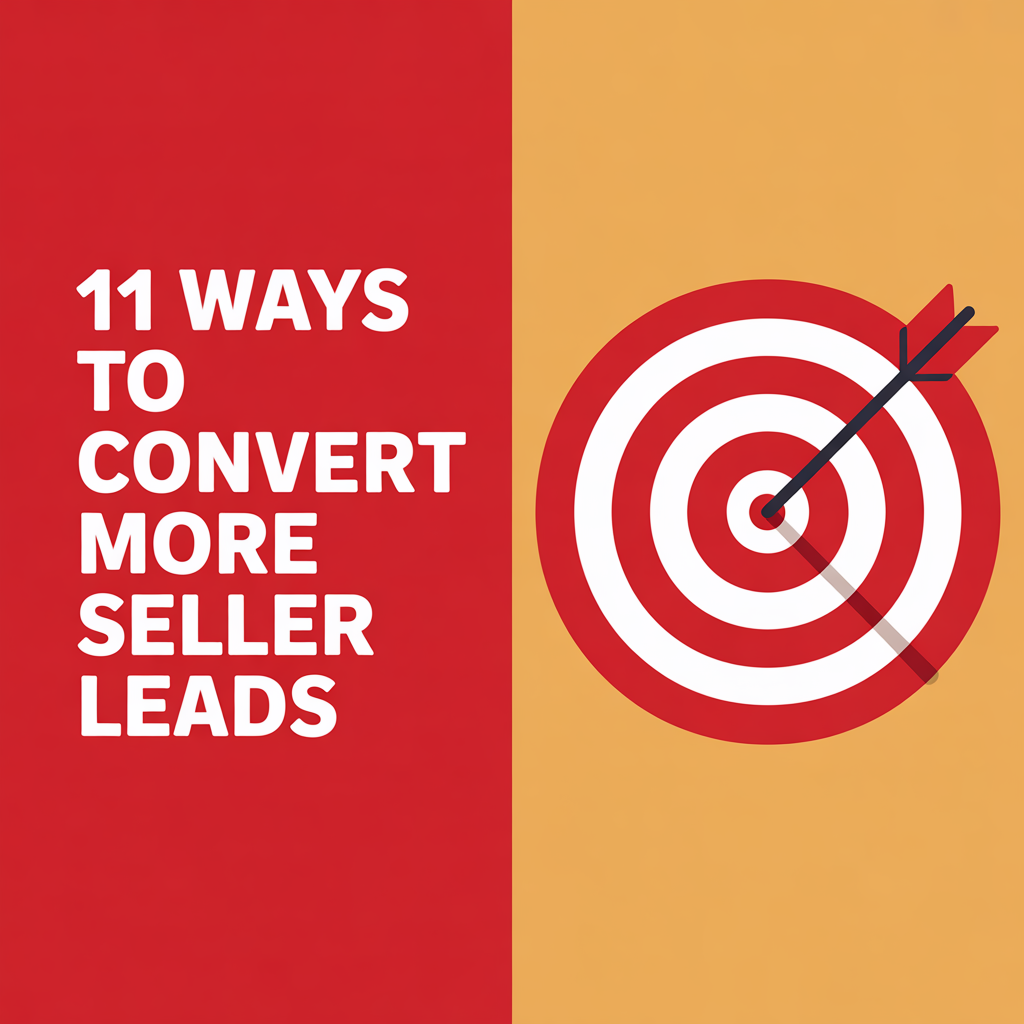Why Real Estate Investors Struggle with Growth
Many real estate investors reach a point where they feel stuck. They know they need to generate more deals and increase efficiency, but they aren’t sure where to start. Without clear data and strong automation, they often throw money at marketing campaigns without understanding what’s actually working. That’s where Stephanie Betters comes in.
Stephanie has built a system that helps investors streamline their operations, automate tedious tasks, and track key performance indicators (KPIs) to make data-driven decisions—all while improving their ability to consistently generate motivated seller leads. Whether you’re doing a handful of deals per year or managing hundreds, the right CRM system can make all the difference in scaling a real estate business efficiently.
Interestingly, Stephanie's strategic mindset aligns with her Predictive Index (PI) personality type—a strategist. She thrives in solving operational challenges and structuring efficient systems. Her husband, on the other hand, is a promoter, which balances the dynamics of their business.
The Journey from Flipping to Building a Scalable Business
Stephanie Betters started her real estate journey back in 2007 with her first live-in flip. After experiencing the ups and downs of the market, she and her husband decided to move away from live-in flips and focus on building a business that could run without them being in the day-to-day. By 2014, they launched Better Path Homes, a real estate investment company based in Charlotte, North Carolina, which now handles around 200 deals per year.
Through this growth, Stephanie quickly realized that the key to scaling wasn’t just about finding deals—it was about having the right systems in place to manage them. This led her to develop a real estate-specific CRM that could track every lead, automate follow-ups, and provide investors with the clarity they need to make strategic decisions.
Before she created Left Main REI, she struggled with Podio, an existing CRM that was commonly used among real estate investors. However, Podio lacked efficiency, forcing her to hire multiple virtual assistants just to extract basic data. The frustration with Podio's limitations was a major catalyst in the development of Left Main REI.
The Biggest Challenge Investors Face: Understanding Their Numbers
One of the biggest mistakes real estate investors make is failing to track their numbers effectively. Many spend thousands—sometimes even hundreds of thousands—of dollars on marketing but don’t know which channels are performing best.
Stephanie highlights that before implementing a proper CRM, her team was spending between $60,000 and $100,000 per month on marketing but had no clear way to determine which efforts were actually driving results. They were relying on virtual assistants (VAs) to scrape data manually, which was inefficient and often inaccurate.
Once they started tracking their KPIs properly, they discovered a shocking gap: they were only making contact with about 70% of their leads. That meant they were leaving a significant amount of money on the table. By implementing a structured CRM with automation, they were able to increase their contact rate to over 90%, resulting in a significant boost in deal flow—without increasing their marketing budget.
Today, Left Main REI works closely with its sister company, Main Dev Experts, to streamline CRM implementation. Main Dev handles onboarding and customer support, ensuring investors can focus on closing deals rather than dealing with technical issues.
The Most Important KPIs for Real Estate Investors
Tracking the right KPIs is crucial for any real estate investor who wants to scale. Here are the top metrics Stephanie recommends focusing on:
1. Percentage of Leads Contacted
- Many investors focus on getting leads but fail to follow up properly. If you aren’t talking to at least 90% of your leads, you’re missing out on deals.
2. Lead Qualification Rate
- How many of the leads you contact are actually motivated sellers? This metric helps you fine-tune your marketing efforts and avoid wasting time on unqualified leads.
3. Appointment Conversion Rate
- Out of the qualified leads, how many actually result in an appointment? If this number is low, it could mean your sales process needs work.
4. Offer-to-Contract Ratio
- How many offers do you need to make before a seller accepts? Tracking this helps you understand the effectiveness of your negotiation strategy.
5. Return on Marketing Spend
- For every dollar you spend on marketing, how much are you making back? This is one of the most critical KPIs for scaling your business profitably.
The Power of Automation in Real Estate Investing
Another major challenge real estate investors face is time management. Stephanie emphasizes that sales professionals in real estate spend only 28% of their day actually selling. The rest of the time is consumed by administrative tasks, follow-ups, and manual data entry.
By implementing automation, investors can free up time and focus on revenue-generating activities. Some key areas where automation makes an impact include:
- Automated Lead Follow-Up: Ensuring that no lead slips through the cracks by setting up automatic text messages, emails, and reminders.
- Task Management: Assigning follow-ups and tracking progress without manual intervention.
- Performance Dashboards: Providing real-time insights into how marketing channels and sales efforts are performing.
Real estate has traditionally lagged behind other industries in technology adoption. Unlike tech-driven sectors, real estate professionals have relied on outdated systems and manual processes for years. However, with the rise of automated tools and CRMs like Left Main REI, the industry is finally catching up.
Choosing the Right CRM for Your Real Estate Business
Stephanie’s company, Left Main REI, offers a CRM built specifically for real estate investors. Unlike generic CRMs, Left Main is designed to handle the unique challenges of real estate investing, from tracking motivated seller leads to automating follow-ups and managing team performance.
Investors who use Left Main benefit from:
- A fully customizable platform built on Salesforce, ensuring scalability as their business grows.
- Automated lead tracking to improve efficiency.
- Integrated marketing performance tracking to help investors understand which channels are driving the best ROI.
With the rise of artificial intelligence, tools like ChatGPT are also playing a role in automation. Investors can now generate optimized text messages, emails, and follow-ups using AI-driven automation, further reducing manual work and improving engagement rates.
Key Takeaways
1. Real Estate Growth Requires Systems, Not Just Hustle
Many investors struggle to scale because they lack the systems to track performance and manage leads effectively. Stephanie Betters addresses this gap through strategic automation and CRM solutions.
2. Stephanie Betters’ Background and Business Evolution
She began with live-in flips in 2007 and later co-founded Better Path Homes, which now handles 200+ deals annually. Her experience led her to develop scalable systems, moving beyond traditional tools like Podio, which proved inefficient.
3. Birth of Left Main REI CRM
Frustrated by limitations in existing CRMs, Stephanie developed Left Main REI—a Salesforce-based platform designed specifically for real estate investors, focusing on automation, performance tracking, and scalability.
4. The Real Challenge: Lack of KPI Visibility
Investors often spend large sums on marketing without knowing what works. Before implementing a CRM, Stephanie’s team couldn’t measure success effectively and were missing contact with 30% of their leads—wasting massive opportunities.
5. KPI Tracking Transforms Business Performance
By tracking and improving KPIs like lead contact rate (raising it to 90%), they increased conversions without upping their marketing spend. Key metrics investors must track include:
- % of leads contacted
- Lead qualification rate
- Appointment conversion rate
- Offer-to-contract ratio
- Return on marketing spend
6. Automation Saves Time and Closes More Deals
Most sales reps spend only 28% of their time selling. Automation via CRMs helps:
- Follow up with leads automatically
- Assign and manage tasks
- View real-time performance dashboards
7. Real Estate’s Tech Lag is Closing
Historically, the real estate industry has lagged behind in tech. Solutions like Left Main REI, paired with AI tools like ChatGPT, are bringing automation and operational efficiency to the forefront.
8. AI Enhances CRM Capabilities
AI now helps investors craft follow-up messages and emails more effectively, increasing engagement while saving time on manual communication tasks.
9. Main Dev Experts Ensures Smooth Implementation
Stephanie’s sister company, Main Dev Experts, provides onboarding and support for CRM adoption, letting investors focus on closing deals instead of tech hurdles.
10. Choosing a Real Estate-Specific CRM is Crucial
Generic CRMs don’t cut it. Left Main REI offers Salesforce-level scalability, tailored specifically to investor workflows, lead management, and ROI tracking.
11. The Strategist-Promoter Dynamic in Business
Stephanie’s Predictive Index profile as a “strategist” complements her husband’s “promoter” type—highlighting the importance of balancing strategic systems with energetic business development.
12. Final Call to Action: Invest in Systems Now
If investors want to scale, they must stop relying on manual systems and start leveraging CRM tools, automation, and KPI tracking to build a sustainable, scalable business.
How to Get Started
If you’re serious about scaling your real estate business, it’s time to take control of your data and automate your operations. The first step is ensuring you’re tracking the right KPIs and leveraging the best technology to streamline your process.
With the right CRM and automation tools in place, you can increase your deal flow, improve efficiency, and ultimately build a business that runs smoothly—without requiring you to be in the trenches every day.
Final Thoughts
Running a successful real estate investment business is all about tracking your numbers, optimizing your processes, and leveraging automation to work smarter, not harder. If you’re still struggling with disorganized leads and inefficient follow-ups, it’s time to make a change.
Invest in the right systems now, and you’ll be able to scale your business, generate more motivated seller leads, and close more deals—all while working fewer hours.






